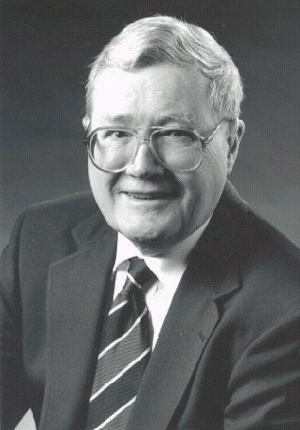Liberty Matters
Tullock on Liberty
 I want to bring up a point that few have touched directly upon in this conversation, namely, Tullock's ideological position. After all, this is "Liberty Matters" run by Liberty Fund. So what were Tullock's views on liberty?
I want to bring up a point that few have touched directly upon in this conversation, namely, Tullock's ideological position. After all, this is "Liberty Matters" run by Liberty Fund. So what were Tullock's views on liberty? As I mentioned in my first comment, Tullock seems—from anecdotal experience—not to have seen himself as a libertarian. In fact, when you browse Tullock's works, there is a marked lack of references to liberty. The word appears six times in The Calculus of Consent—all six in the titles of cited works. However, the cited works are not important in this respect: they were Berlin's Two Concepts of Liberty (1958/1969) and Hayek's The Constitution of Liberty (1960)—which in itself says a great deal. Similarly with "freedom," to which there are a total of 15 references, but again mostly titles, including Leoni's Freedom and the Law (1961/1991). In other prominent works by Tullock (e.g., 1974, 1986, and 1987), there is even less emphasis on liberty/freedom.
That, of course, did not mean that Tullock was uninterested in how free humans are, but rather that he, first and foremost, was a consequentialist of some form. Certainly, when you read him straight from his earliest works, there seems often—as with many economists—to be much of a utilitarian reasoning at play and a decidedly non-"moral" attitude.
But Tullock rarely made normative recommendations based in crude comparisons of supposed utilities across individuals. Sometimes, but not often. Most of the time Tullock seems to have approached what perhaps more resembles a form of "rule utilitarianism." He was interested in what arrangements in general would tend to have the highest net value, broadly understood, to society.
This is probably where Tullock shared a path with Buchanan and at the same time diverged. They shared a view of market exchange as being socially beneficial and a fear of what would happen if law and order broke down. (Buchanan /2001, Tullock 1972/2004) But where Buchanan was interested in the potential for cooperation, Tullock was fascinated by the lack of it.
So, if we compare their respective writings, we see—somewhat simplified—a tale of two theories of what happens when human beings have divergent interests: the one somewhat idealistic and rationalist (Buchanan), showing how the same forces that work in the marketplace (contract and exchange) may lead them to adopt institutional frameworks that will work for the common good (Buchanan 1975/1999), the other empiricist, skeptical, and cynical (Tullock), seeing potential conflict (war, plunder, rent-seeking, etc.) everywhere (Tullock 1974)--the former seeing men as naturally equal, the latter seeing them as naturally ending up in different places of power and hierarchy.
This is, so to speak, a modern conflict between a Tom Paine, or at least a Thomas Jefferson, and an Edmund Burke (although Tullock, of course, would have had none of Burke's romanticism).
References
Berlin, I. 1958/1969. "Two Concepts of Liberty." In I. Berlin, ed., Four Essays on Liberty (pp. 118-72). Oxford: Oxford University Press.
Buchanan, J. M. 1975/1999. The Limits of Liberty: Between Anarchy and Leviathan, The Collected Works of James M. Buchanan, vol. 7, G. Brennan, H. Kliemt, and R. D. Tollison, eds.). Indianapolis, IN: Liberty Fund.
_________. 1977/2001. "A Contractarian Perspective on Anarchy." In Choice, Contract, and Constitutions (pp. 15-27), The Collected Works of James M. Buchanan, vol. 16, G. Brennan, H. Kliemt, and R. D. Tollison, eds. Indianapolis, IN: Liberty Fund.
Hayek, F. A. v. 1960. The Constitution of Liberty. London: Routledge & Kegan Paul.
Leoni, B. 1961/1991. Freedom and the Law 3d ed. Indianapolis, IN: Liberty Fund.
Tullock, G. 1974. The Social Dilemma: The Economics of War and Revolution. Blacksburg, VA: Center for Study of Public Choice.
_________. 1986. The Economics of Wealth and Poverty. New York: New York University Press.
_________. 1987. Autocracy. Dordrecht: Kluwer.
_________. 1972/2004. "The Edge of the Jungle." In C. K. Rowley, ed., Virginia Political Economy (pp. 309-22), The Selected Works of Gordon Tullock, vol. 1, C. K. Rowley, ed. Indianapolis, IN: Liberty Fund.
Copyright and Fair Use Statement
“Liberty Matters” is the copyright of Liberty Fund, Inc. This material is put on line to further the educational goals of Liberty Fund, Inc. These essays and responses may be quoted and otherwise used under “fair use” provisions for educational and academic purposes. To reprint these essays in course booklets requires the prior permission of Liberty Fund, Inc. Please contact oll@libertyfund.org if you have any questions.